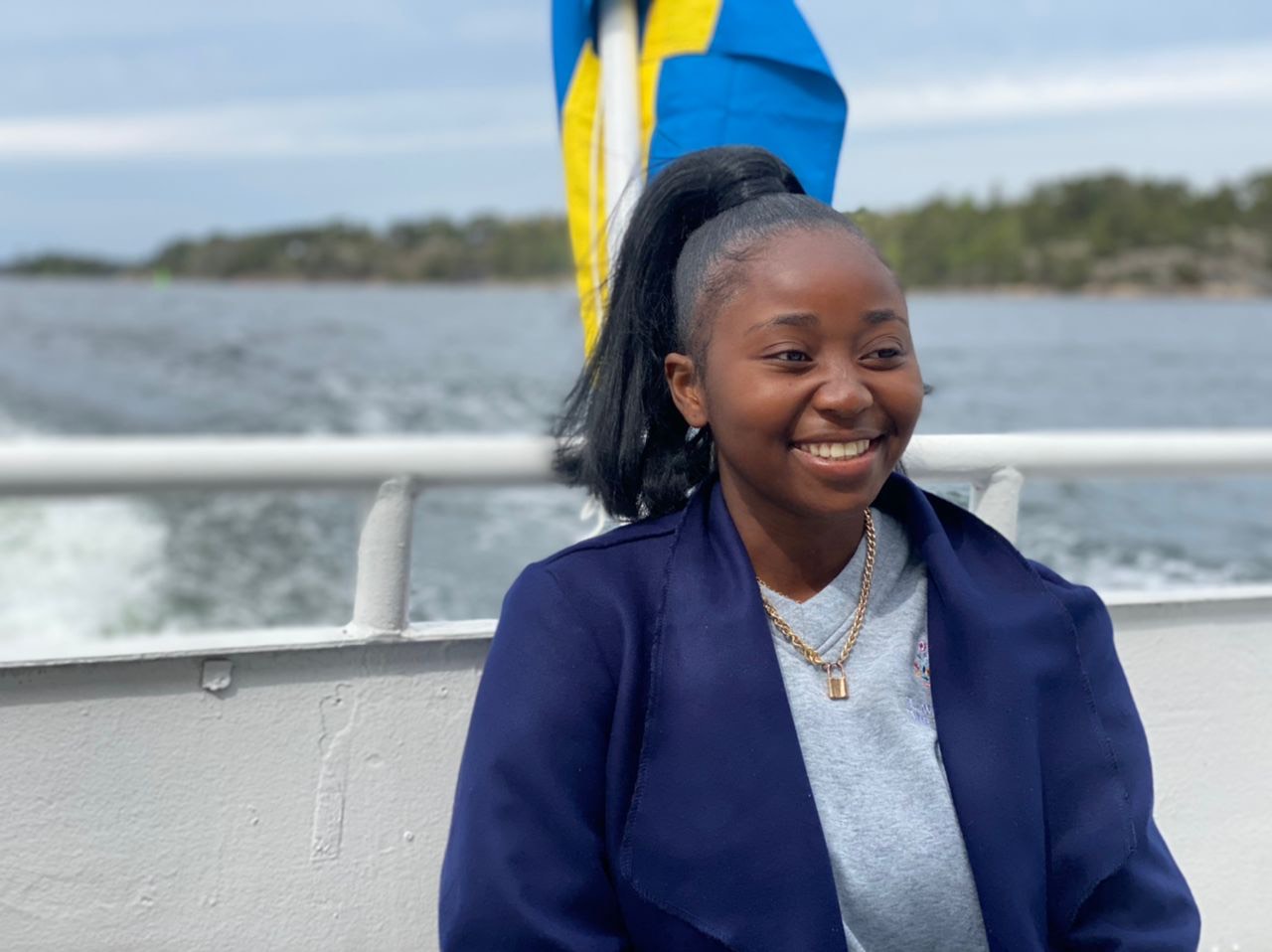Tapera Joy Mbewe – youth champion for change

Artikeln är skriven på uppdrag av Internationellt Centrum för Lokal Demokrati
A municipal partnership between the Swedish municipality of Kungsör and the Zambian town council of Rufunsa is working together to ensure youth and women’s equal access to and full participation in decision-making. The aim is to transform the existing power structures which are designed to accommodate men and discriminate against women. The three-year partnership has been working successfully to make women’s and young people’s voices heard since its launch in 2021, and involving young people themselves in this work has been a central part of the partnership.
Today, we meet Rufunsa councillor Tapera Joy Mbewe, who is not only a member of the project’s steering group, but who, at her 21, is the youngest female politician in Zambia.
In this conversation, we want to find out how a young woman like Tapera, coming from a non-political family in a rural area in Zambia, was able to find her way into politics. We will also learn about her work on getting more women and young people engaged in political activities.
Youngest female politician in Zambia
Tapera Joy Mbewe is a Kankhumba Ward Councillor in Rufunsa District who successfully won seat in the 2021 August election, thus becoming the youngest female politician. Tapera explains that it was not a passion for politics itself, but an urge to bring about a change that led her into politics.
– I was ten, and my friend was being married off, says Tapera. We played together, and I would only imagine what her being a wife and a mother was going to be like. I thought: ”I can’t feel her pain, but I know it hurts. And I want to put an end to this.”
Growing up in a rural environment, Tapera got to see a lot of issues: her peers were lacking the most obvious things such as health care and education. She herself was lucky to go to a good school and to have a strong role model by her side:
– I saw how my mom was so active in the community, helping people, relating so well – she didn’t make a bridge between who she was and who they were. I thought: ”I want to help people even more than she does.”

Apart from being an elected politician, Tapera is a fourth-year law student at Cavendish university. Inspired and encouraged by her mother, Tapera also saw that most of the political leaders that she admired were lawyers. As for her own goals, she says that she aims to use her legal skills to give voice to the voiceless:
– I do not only want to speak for them, but also to create a platform where they will be able to speak for themselves. We do need women in civic life. We do need women to run for office. We need feminists who understand the value and needs of women to be at the table when decisions are being made so that the right decisions are made. And if we are not included at the table, we must make our own table.
The Swedish-Zambian partnership
The municipal partnership project that Rufunsa has together with the Swedish municipality of Kungsör is in its second year. The project team strive to create spaces for diverse voices and experiences to be heard and to promote an equal distribution of political leadership roles between women and men of different ages. And Tapera Joy Mbewe is convinced that the partnership will bring about major changes to the two communities.
– The exchange of knowledge is very important. When you are doing something as big as encouraging the youth and women to participate, and making people aware of their rights, it becomes a bit difficult when you are looking at it from one perspective. During our visit to Sweden, we saw that Kungsör has tried certain things that we were thinking would work, and they failed. So, we are learning from each other’s mistakes.
To her surprise, the young politician saw more similarities than differences between Sweden and Zambia. The most significant similarity, according to Tapera Joy Mbewe, is the low participation of youths and women in the decision-making processes:
– Youth in both Sweden and Zambia has little or no interest in these decision-making roles. They would rather occupy their time with other activities. They are not to blame, because since time immemorial, youth and women have been deemed incompetent to lead. But now we live in a different society, more open to change.
As a young person and a woman in politics, Tapera has already faced several challenges related to archaic views on who can be a politician. She means that many politicians are not used to listen to people as young as Tapera. It is not uncommon for them to try to tone her down when she speaks out.
– I believe, we need to sensitize both the community and the politicians about that. Treat young people as equals. We are no longer youth at the table, we are no longer women and men. We are all equals, because we all have the same seat. So we should act as such.
The need for systemic change
The young politician together with the Swedish-Zambian project team agrees that achieving equal access to and full participation in decision-making requires systemic change, and it always starts with a policy.
– I think we need more policies that can encourage women and youth to join politics. As it is now, we compete at the same level – be it a young person, somebody in his fifties, a woman – and it is by chance that some of us even get the seats. Specific portions should be given for the under-represented groups: at local level, this portion is for women and youth; at constituency level, this portion is for women and youth. In this way, I think more people will get encouraged.
When we ask Tapera what she wants to have accomplished in ten years, she says she hopes Rufunsa will reach another level, and to achieve that, the young politician intends to involve different actors such as traditional leaders, NGOs and other experts.
– I come from a place where our culture is not yet used to having a woman or a young person in leadership, Tapera Joy Mbewe explains. They still believe that men should be leaders. So it’s actually a big step to even find someone like me in a decision-making role.